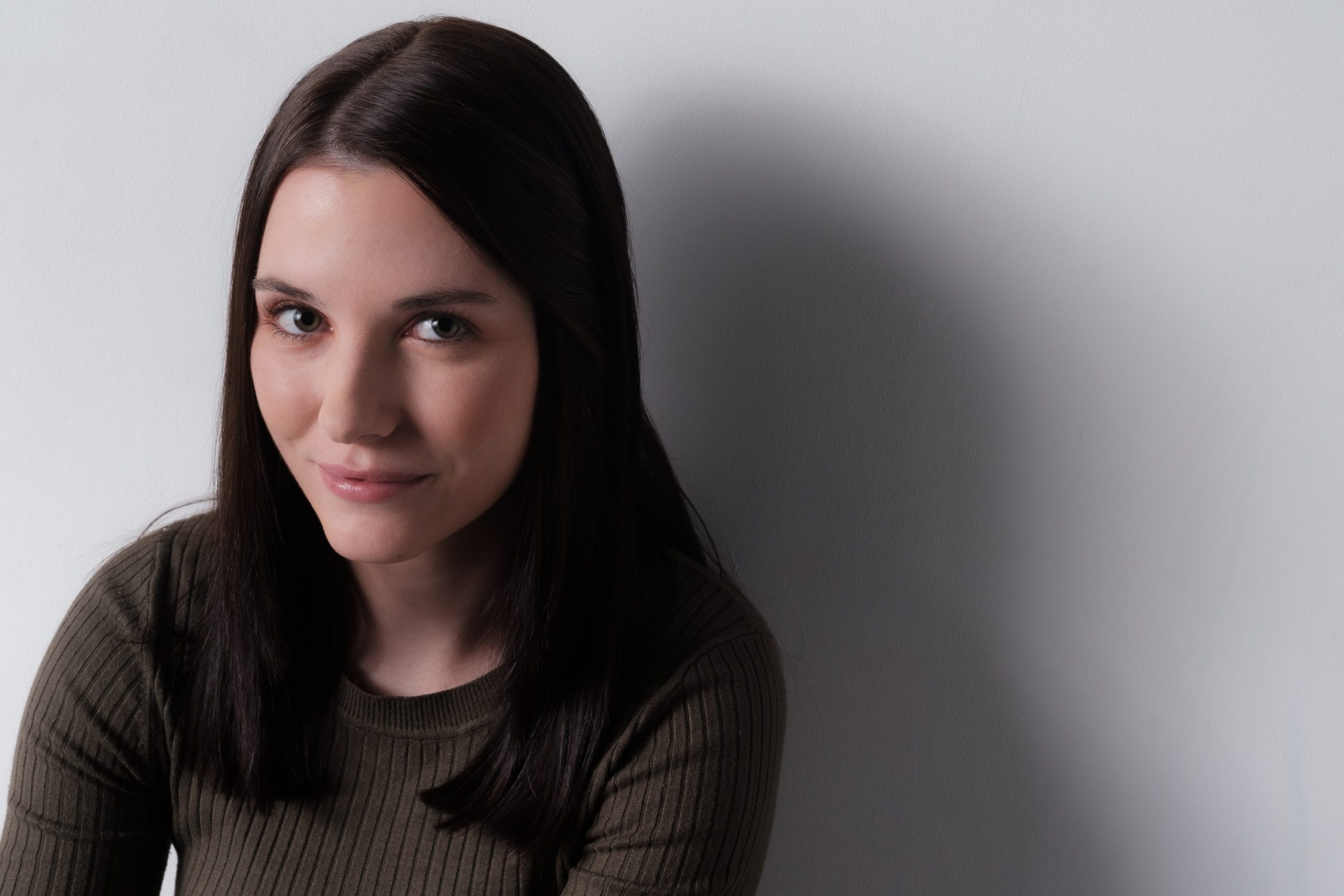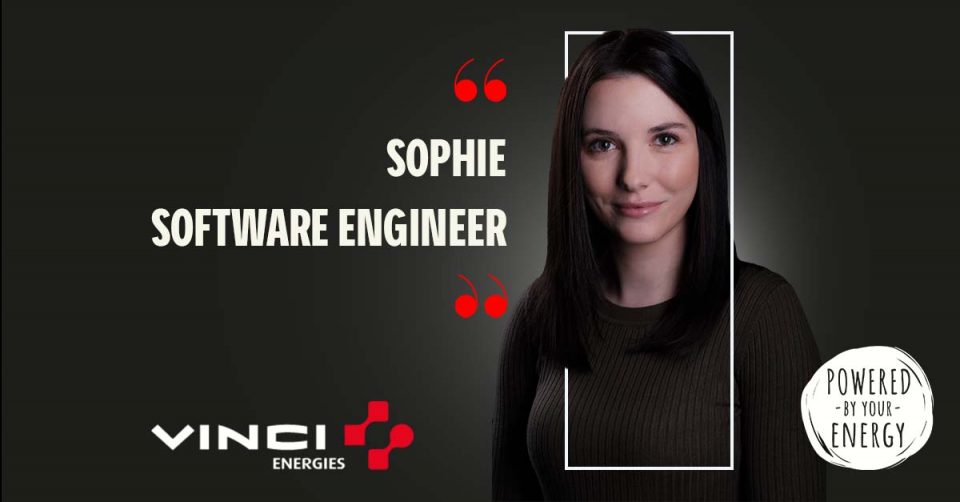Sophie: Software Engineer
The 26-year-old Sophie Van Der Fraenen works as a Software Engineer at Axians. She develops customized software, tailored to the specific needs and preferences of customers.

“I never found it strange to be the
only woman around, but just pursued my own interests.”

- Name: Sophie Van Der Fraenen
- Age: 26
- Studies: Master Industrial Engineer, field of study computer science (UGent)
- Position: Software Engineer
- Hobbies: Puzzling, reading, running, HIIT (High Intensity Interval Training) and playing badminton
The 26-year-old Sophie Van Der Fraenen works as a Software Engineer at Axians. She develops customized software, tailored to the specific needs and preferences of customers.

Did you ever feel like an outsider during your professional career?
Sophie: I’ve always had mostly male friends, so I never found it strange to be the only woman around. I just pursued my own interests. In primary school I was the only girl playing with the boys in the mud or in the woods. During the standard study path in my master’s year, I was also the only woman. Only when I had to deal with prejudice or certain remarks, I became aware of this. When walking into a classroom, the confused looks made me feel like I had stepped into the wrong room. Sometimes the professor addressed me as “Sophietje”. It was not meant to be a negative thing, but it did come across as patronizing. As a woman you already stand out in this field of study, so it was unnecessary to draw even more attention to it that way. Fortunately, I don’t have to deal with this at work. My colleagues only make jokes when they know that the other person can laugh about it.
How can more women be introduced to the technical sector?
Sophie: The problem starts in secondary school: there are not enough technical courses. In my first year at UGent, I chose Industrial Engineering with chemistry as an option, because I didn’t know what computer science entailed because that course didn’t exist in secondary school. Fortunately, STEM has brought change to this already. In the first year of secondary school, you no longer have to choose between ASO or TSO. Students see all facets of abstract sciences on both a practical and theoretical level. Secondary education is taking a big step forward with this. I hope that, as a woman with a technical profession, I can also have a positive influence on others. My niece already looks up to me. She enthusiastically tells me all the things she learns in IT class.
Why did you choose VINCI Energies?
Sophie: During my job interview for VINCI Energies, I was challenged for the first time. At other companies I had applied to, the recruiters tried to convince me instead of me having to convince the company. This gave me the impression that I was only qualified because of the statistics. I felt like a number that the company could use to prove that it was indeed ‘inclusive’. At VINCI Energies, I had to prove myself based on my technical knowledge, which made me feel like I should earn the job fairly.


